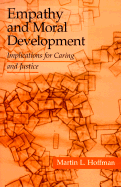Book contents
- Frontmatter
- Contents
- Acknowledgments
- 1 Introduction and Overview
- Part I Innocent Bystander
- Part II Transgression
- 5 Guilt and Moral Internalization
- 6 From Discipline to Internalization
- Part III Virtual Transgression
- Part IV Is Empathy Enough?
- Part V Empathy and Moral Principles
- Part VI Culture
- Part VII Intervention
- References
- Author Index
- Subject Index
6 - From Discipline to Internalization
Published online by Cambridge University Press: 05 June 2012
- Frontmatter
- Contents
- Acknowledgments
- 1 Introduction and Overview
- Part I Innocent Bystander
- Part II Transgression
- 5 Guilt and Moral Internalization
- 6 From Discipline to Internalization
- Part III Virtual Transgression
- Part IV Is Empathy Enough?
- Part V Empathy and Moral Principles
- Part VI Culture
- Part VII Intervention
- References
- Author Index
- Subject Index
Summary
To recapitulate, transgression situations are those in which a person harms or is about to harm another. A transgression may be provoked, intentional, accidental, a by-product of interpersonal conflict, or a violation of another's expectations. The moral issue is whether the transgressor is motivated to avoid the harmful act or at least feels guilty and acts prosocially afterward, and whether he or she does these things even in the absence of witnesses. I have long argued that the foundation for guilt and the prosocial moral internalization necessary for combating egoistic needs in conflict and other transgression situations originates in discipline encounters, especially those in which children harm someone. Discipline encounters are settings in which parents attempt to change a child's behavior against the child's will. They begin when the child's behavior diverges from the parent's wishes and end when the child complies, the parent gives up, or an external event intervenes (doorbell rings). In an intensive study of preschoolers (Hoffman, 1963), the average encounter took 2 to 3 discipline attempts (though one took 17!), and, as in Schaffer and Crook's (1980) research, the children complied in over 80 percent of them.
Why single out discipline, when parents also nurture and express affection to their children, spend time playing with them, explain and interpret the world to them, and, above all, serve as models of acceptable moral behavior? For one thing, discipline encounters are important because they are frequent.
- Type
- Chapter
- Information
- Empathy and Moral DevelopmentImplications for Caring and Justice, pp. 140 - 172Publisher: Cambridge University PressPrint publication year: 2000



